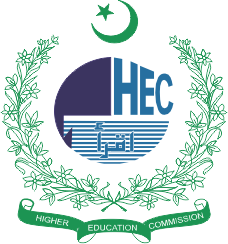Education, Poverty, and Economic Growth Nexus in Pakistan
DOI:
https://doi.org/10.63062/trt/WR25.071Keywords:
Education, GDP, Poverty, ARDL, Pakistan, EconomicAbstract
This study examines the correlation between education, poverty reduction, and economic growth in Pakistan for the period 1972 to 2023. The analytical procedure of Autoregressive Regressive Distributed Lag (ARDL) reveals that long-run relationships are evident in education, poverty, and economic growth. Education positively influences economic growth and is found to reduce poverty. The study emphasized the connection between economic growth, poverty, and education, highlighting the importance of education in improving socioeconomic standing and reducing poverty. The study concludes that education is a major factor contributing to Pakistan's economic growth and poverty alleviation. It advocates policies promoting economic growth and addressing poverty issues.
References
Afzal, M., Rehman, H., Farooq, M, S., & Sarwar, K. (2011), Education and economic growth in Pakistan: A cointegration and causality analysis. International Journal of Educational Research, 50(2011), 321-335. https://doi.org/10.1016/j.ijer.2011.10.004
Awan, M. S., Malik, N., Sarwar, H., & Waqas, M. (2011). Impact of education on poverty reduction. International Journal of Academic Research 3(1), 659-664. https://mpra.ub.uni-muenchen.de/31826/
Bah, I. A. (2023). The relationship between education and economic growth: A cross-country analysis. Research, Society and Development, 12(5), e19312540522-e19312540522. https://doi.org/10.33448/rsd-v12i5.40522
Gewirtz, S. (2017). Rethinking education and poverty. British Journal of Sociology of Education, 38(7), 1081-1088. https://doi.org/10.1080/01425692.2017.1349654
Imtiaz, M., Abid, M. Y., & Sheikh, D. S. M. (2023). Impact of education and income inequality on the poverty rate of Pakistan: An econometric analysis. Pakistan Islamicus (An International Journal of Islamic & Social Sciences), 3(2), 129-141. https://www.pakistanislamicus.com/index.php/home/article/view/52
Jamel, L., Ltaifa, M. B., Elnagar, A. K., Derbali, A., & Lamouchi, A. (2020). The nexus between education and economic growth: analyzing Empirically a case of middle-income countries. Virtual Economics, 3(2), 43-60. https://www.ceeol.com/search/article-detail?id=895365
Li, Y., & Kang, Y. (2024). The impact of China’s economic growth on poverty alleviation: From absolute to relative poverty. https://doi.org/10.48550/arXiv.2412.20176
Pasha, H. A. (2023). The growth–inequality–poverty nexus in Pakistan. Pakistan Journal of Applied Economics, 33(2), 231-239. https://journals.aerc.edu.pk/index.php/pjae/article/view/123
Sahoo, P., Mondal, S., & Paltasingh, K. R. (2024). Unveiling poverty dynamics in India: Examining convergence and determinants at sub-national level. Journal of Poverty, 1-24. https://doi.org/10.48550/arXiv.2412.20176
Sarjito, A. (2024). Implikasi kebijakan pendidikan dalam mengurangi kemiskinan dan ketimpangan. Jurnal Loyalitas Sosial, 6(2), 100-123.
Shah, S. Z. A., Sharif, C. I., & Farooq, F. (2021). Poverty human capital and economic development nexus: A case study of Multan Division. Sustainable Business and Society in Emerging Economies, 3(4), 461-469. https://doi.org/10.26710/sbsee.v3i4.1924
Shaheen, R., Yasmin, N., Safdar, N., Yasmin, F., & Khatoon, S. (2021). Education, poverty, and unemployment: A way forward to promote sustainable economic growth in Pakistan. The Journal of Contemporary Issues in Business and Government, 27(6), 74-85. https://doi.org/10.47750/cibg.2021.27.06.005
Son, L., Noja, G. G., Ritivoiu, M., & Tlteanu, R. (2013). Education and economic growth: An empirical analysis of interdependencies and impacts based on panel data. Journal of Economics and Business, 6(9), 39-54. https://tjeb.ro/index.php/tjeb/article/view/TJEB19_Aug2013_39to54
Zaman, M., Pinglu, C., Hussain, S. I., Ullah, A., & Qian, N. (2021). Does regional integration matter for sustainable economic growth? Fostering the role of FDI, trade openness, exports, and capital formation in BRI countries. Heliyon, 7, 1-10. https://www.cell.com/heliyon/fulltext/S2405-8440(21)02662-1
Downloads
Published
Issue
Section
License
Copyright (c) 2025 Dr. Sidra Ilyas, Dr. Khawaja Asif Mehmood, Sidra Saeed

This work is licensed under a Creative Commons Attribution-NonCommercial 4.0 International License.





